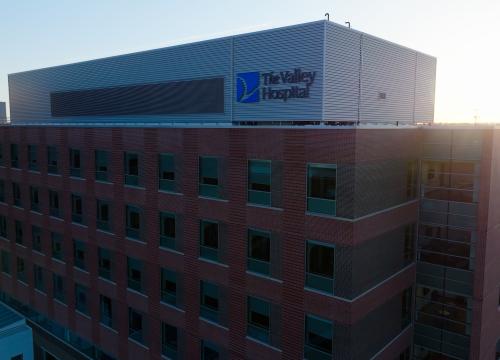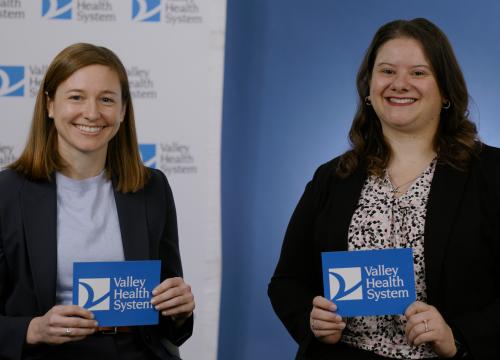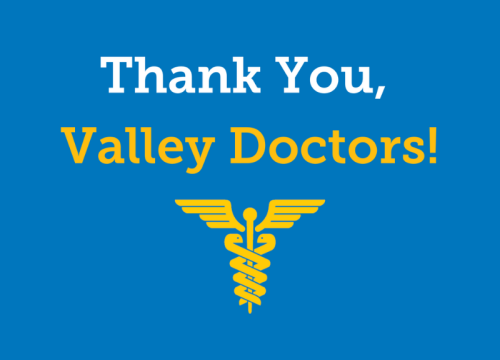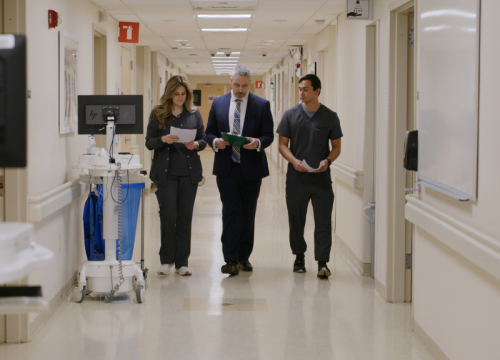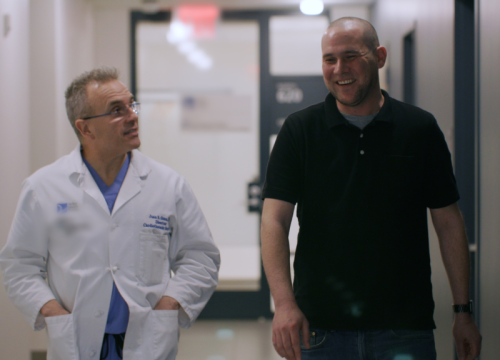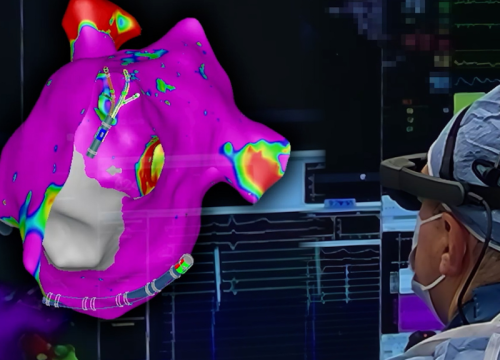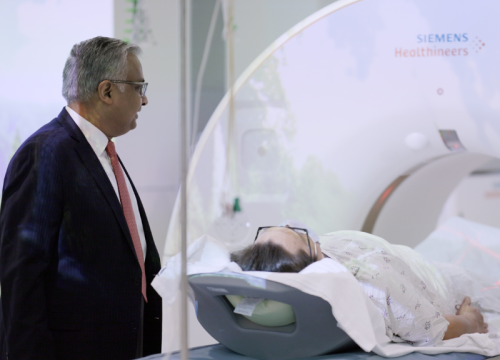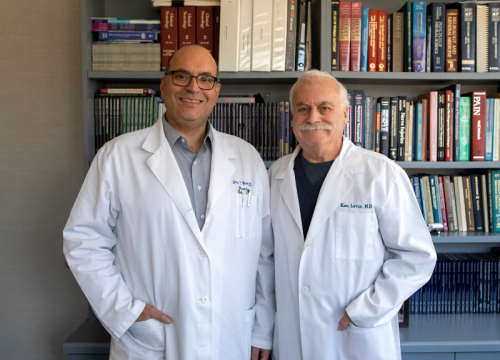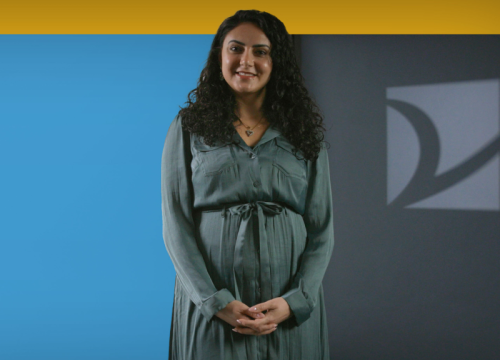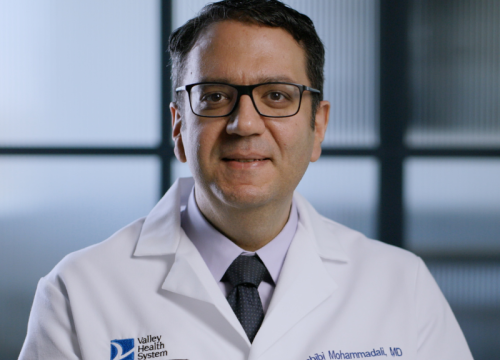Ovarian cancer treatment can require difficult decisions, particularly for patients of childbearing age. As a woman-based team, we know there may be much on your mind when you come to us.
Ovarian cancer is a form of gynecologic cancer. Ovarian cancer may begin either in the ovaries (the two small, almond-shaped organs on each side of the uterus that produce female hormones and store eggs) or the fallopian tubes.
As the first step in your care, we get to know you. We want to hear your concerns and needs. Then, together, we build a personalized approach to your care.
Ovarian Cancer Risks
Women who have the following have an increased risk for ovarian cancer:
- Family history of breast cancer, ovarian cancer, or colon cancer
- Immediate blood relative (mother, sister, or daughter) with ovarian cancer; two or more close blood relatives increase your risk further
- Family history of cancer caused by a mutation of the BRCA1 or BRCA2 gene
Valley’s Cancer Genetics Program offers genetic testing for women with family history of any of the above cancers.
Ovarian Cancer Symptoms
Women with ovarian cancer don’t always have symptoms or their symptoms may be mild. When related to ovarian cancer, the following symptoms are chronic and become worse over time:
- Pain or swelling in the lower abdomen
- Appetite loss
- Feeling full after eating only a little
- Indigestion
- Nausea
- Weight loss
Ovarian Cancer Treatment at Valley
When we treat ovarian cancer, we treat the whole person.
Your treatment options will depend on the cancer’s stage, whether you plan to have children and your overall health. Depending on the stage, treatment typically includes surgery and chemotherapy.
We understand this may feel scary, but you are more than just a diagnosis to us. When we develop our treatment plan together, your life and goals are our priority.
Surgery
Surgery is the primary treatment for many ovarian cancers. There are two primary goals of ovarian cancer surgery:
- Staging the tumor to see how far the cancer has spread from the ovaries
- Debulking and surgically removing as much of the cancer as possible
The Gynecologic Oncology Program at Valley offers multiple options for ovarian cancer surgery.
Medical Therapy
Your physician may also recommend chemotherapy and/or other targeted therapy to treat ovarian cancer. Your physicians will discuss which treatment options best suit your situation and refer you to a medical oncologist.
Fertility Preservation
If you’re a younger patient undergoing cancer treatment and want to preserve your options for building a family in the future, Valley’s Fertility Preservation program can help. Our fertility and cancer teams work together to schedule fertility preservation alongside your cancer treatment.
For patients who need a hysterectomy, the fertility program offers options for gestational surrogacy using your frozen eggs.
Why Choose Valley for Ovarian Cancer?
- Genetic counseling and testing: For women with a family history of ovarian cancer, we often recommend genetic counseling and genetic testing. Knowing whether you carry specific genes, such as BRCA1 or BRCA2, can affect how you and your physician make treatment decisions.
- Mount Sinai partnership: Valley and the Mount Sinai Health System have partnered to provide patients with access to additional clinical trial opportunities and Mount Sinai’s nationally renowned specialists in cancer care.
- Dedicated medical oncologists: Our cancer subspecialists dedicate their work to treating your cancer in the most personalized and effective way. We customize your care using the latest advancements in chemotherapy, targeted therapy, immunotherapy and hormone therapy.
- Multidisciplinary care through our weekly tumor board: Our cancer experts and Mount Sinai specialists discuss your case and share knowledge weekly. Together, we create a personalized treatment plan for you.
- Access to residents’ latest insights and experience: As the next generation of healthcare leaders, our residents contribute value to our practice and patients. Their commitment to clinical excellence, education and intellectual curiosity strengthens our excellent cancer care.
- Clinical trials: Clinical trials can improve clinical outcomes for some patients. With access to some of the most leading-edge treatments available today, we give our patients access to ovarian cancer clinical trials. We also conduct research to advance our knowledge and care options for ovarian cancer patients.



